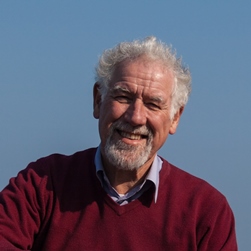 Everyone will have their own answer to this question. Many would refer to H H Read’s well-known dictum, that “The best geologist is the one who has seen the most rocks.” I’m sure we’d all agree that experience is necessary, but is it sufficient?
Everyone will have their own answer to this question. Many would refer to H H Read’s well-known dictum, that “The best geologist is the one who has seen the most rocks.” I’m sure we’d all agree that experience is necessary, but is it sufficient?
I wholeheartedly support Mike Harris’s call for more summer jobs for students at mines or exploration camps (Soapbox, July 2015). It speaks to the idea that experiential learning is the most important developmental mechanism for good geological practice. Fieldwork is also an important differentia in early career – a good geologist enjoys working in the field. But again, is that a sufficient criterion?
Chartership
In 1990 The Geological Society awarded the first of its charterships. Criteria for validation clearly state what competencies are required (see Chartership and Professional). Applicants must demonstrate proficiency at scientific thinking skills, communications and professionalism. I have no argument with that but I believe something even more is needed. I suggest that that something is - guidance and support from colleagues, or mentoring.
The question about what makes the best geologist is not simply about how well an individual applicant meets the criteria, but also about how he or she got to where they are now. When we wrestle with this question we will almost certainly reflect on the best geologists whom we have known personally. I am immensely grateful to my mentors in the past and I’m sure all Geoscientist readers are similarly grateful. I believe that mentors are as important to an individual’s professional career as are lecturers and supervisors to professional training programmes - perhaps even more so.
The term mentor is used here in the widest possible way. In addition to traditional sponsorship mentors, also included are advisers, coaches, trainers and role models who provide support at a personal level. Perhaps the term developmental relationships or ‘developers’ might be preferable. One thing they all have in common is that mentoring is an altruistic activity. A mentor should never take credit for a pupil’s achievements.
Social science research in executive coaching and mentoring has consistently shown, over the past 30 years, that both ‘mentees’ and mentors not only receive higher salaries and climb the career ladder faster, but are also more satisfied with their careers overall. Research shows that if both mentors and ‘mentees’ have some basic training in coaching skills, outcomes are more likely to be successful.
It is a sad fact that only 21% of the Fellowship is currently chartered. One way to encourage applications and to increase the numbers would be for many more CGeols to volunteer as mentors. A little reading and basic training will provide basic coaching skills, show how to structure meetings and reduce fears of dysfunctional relationships. I commend The Society’s website page on mentoring (www.geolsoc.org.uk/mentoring).
To be a mentor can be a very satisfying experience, albeit a vicarious one. For the ‘mentee’, it could be an essential professional relationship. Perhaps Read’s dictum could be rephrased as “The best geologist is the one who has had the best mentors.”
- John Arthurs CGeol, EurGeol, PGeo, MSc, DIC, DMS, MIMMM., also includes ‘Dip Exec. Coaching’ among his postnominals. E: [email protected].